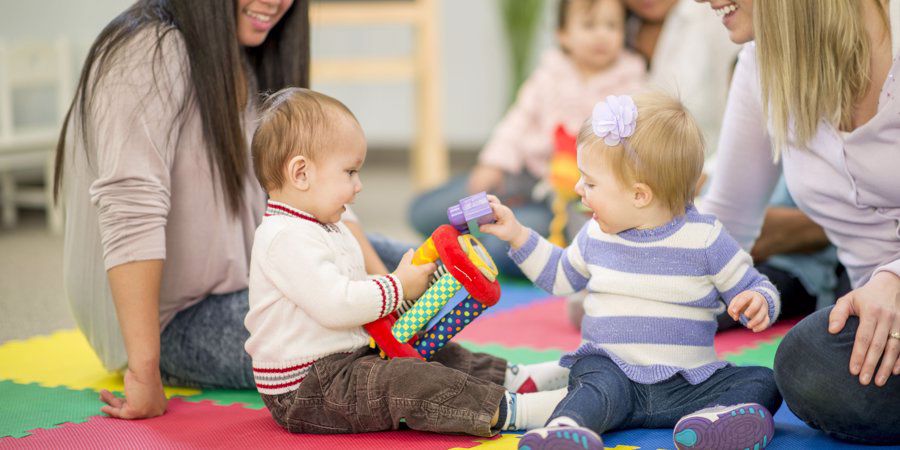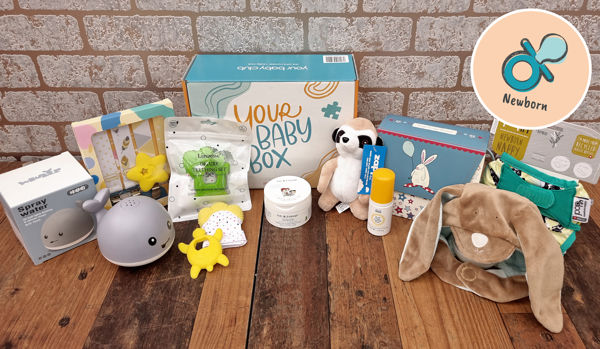No matter what age your child is, when they start childcare it can be a huge milestone for them (and for you). We've got some helpful tips for helping your child settle in as easily as possible.
First of all, choose a childcare provider that works for you as a family and that you feel your child will be comfortable in. It's not about what your friends and family do, or picking the most expensive option with loads of added extras that you won't actually use. Our choosing a childcare provider guide will take you through the process.
There are some aspects to settling your child into their new childcare setting which will be specific to their age. If your child is older, it is still worthwhile reading from the beginning though. Many aspects of helping your child prepare for their journey away from you will be relevant at any age.
[Read more: Choosing a Childcare Provider]
Babies up to nine months
Although it may seem that your baby won't really understand what's happening, babies aged between 6-9 months will be aware of changes in their routine. It's at around seven to nine months that separation anxiety sets in too, which can present an extra challenge. The key at this age is to take it slowly and give your child, and yourself, plenty of time to get acclimatized to the new arrangements.
It is very likely that your childcare provider will offer some settling in sessions. This may be a short one with you there followed by another without you. Rest assured that the staff are very familiar with these types of sessions and will probably offer a 1:1 time. Your child may surprise you with how quickly they feel comfortable!
If it's possible, try to give plenty of time for the first few drop-offs, so that you're not rushing off anywhere. Leaving your child can be very emotional for you so perhaps delay your return to work! It can be really helpful to send your child in with a familiar object from home to help with the transition. Try to avoid sending in anything particularly special though, in case it gets lost.
Make sure that you understand what you need to send your child in with. This could include at least one spare change of clothes, a coat and wellies. You may also need nappy rash cream and shoes for outdoors, even if they are not walking yet.

Toddlers aged from nine months to two years
This is a really exciting time for your child with plenty of development milestones, as well as walking and talking picking up speed. Thanks to this development your child is much more conscious of the world around them, and also how they fit into it. This can make starting childcare more challenging, as they might not fully comprehend that you are leaving and coming back later. This is a concept that you can practice easily at home though. Even something as simple as moving out of sight behind a day or into another room and then appearing can be helpful. Talk to your child whilst you are doing this so that they understand that ‘mummy is going’ and ‘mummy is back’. At this stage, your child won’t understand the concept of time so they won’t realise how long you have been away from them.
If it’s possible to do so, try and meet up with some parents and children that will be attending the same childcare setting. That way you can encourage your child to be social and they will also have a familiar face when they start.
Make sure that your child is wearing comfortable clothes and shoes that are not too difficult to change if there are any accidents. Some children can get upset if they spill or make a mess on a favourite outfit, so don’t send them in wearing that. For girls especially, you’ll need a large supply of hair bands and hair clips for long hair, as they never stay put all day. If your child wants to take a special item or toy in with them, encourage them to put it away in their bag for safekeeping when you drop them off.
Children from two years
If your child is starting childcare at a later age, or perhaps changing the setting, they will be much more aware of what's happening. There is a lot that you can do to help them prepare.
There are plenty of books available, many with your child's favourite characters starting nursery. If possible, go on another informal visit or show your child photos of the actual setting. This will allow them to start to understand what to expect. Attending groups or activities will allow your child to mix with children of a similar age and unfamiliar adults, and hopefully, learn a bit of independence from you. Structured activities can also help with sharing, listening and turn-taking skills, plus helping with physical and mental development.
If you can, try to have a few test sessions where your child is away from you but with a familiar adult. This is good practice for you too! A few days before your child starts, ask them how they are feeling about it. If they are nervous or unsure you could ask them what would help them feel better. It may be that taking a toy or book in with them helps them feel brave!
You could also try out some short activity sessions with your child, to replicate some of the things they will be doing at their childcare setting. Completing puzzles and reading books are easy examples of this or painting or colouring in a picture from a specific theme. Also, talking through and drawing different shapes is great for early math skills, as well as pencil/pen grip and concentration. It doesn’t need to be anything formal or too challenging, but tasks such as these will help your children understand what to expect. You could make it into a game of ‘playing nursery’.
Practice your ‘getting ready’ routine so that your child can start to master getting themselves dressed and getting their coat and shoes on. It will also help you to see how long you will need to get out of the front door! Choose shoes with velcro fastenings rather than laces, and coats with poppers as well as a zip. It can also be helpful for your child to be able to wash and dry their hands by themselves, even if they need a bit of help with the taps!
As with the younger ages, make sure you are aware of everything that you need to send your child in with. Depending on the time of year, this could include a set of waterproofs or all-in-one, wellies, suncream and their own water bottle. If your child needs any medication, make sure that this is clearly labelled in a separate bag, with instructions if required.
Saying goodbye
Here comes the tough part. When you are leaving your child, it can be very difficult for both of you. Try to stay calm and not show your child if you are upset, save the tears for outside! At drop-off, say goodbye to your child so that they are aware that you are leaving, and then leave. Don’t linger at the door or stay for extra cuddles. The staff will have lots of strategies for calming or distracting your child. If you need to, you can always call a bit later on to check that your child has settled, although don’t be too offended if they didn’t miss you!

You are likely to receive a ‘handover’ at pick up which could either be a written log or a verbal list of what your child has done during the day. If you have any questions or issues you want to raise, this is a good opportunity to do so or you can arrange to meet with your child’s keyworker. There’s no such thing as a silly question!
If you feel that your child is not settling in, especially during the first few days, make sure that you do give the situation some time. It may be the case that the setting is not right for your child, but sometimes a child just needs a few weeks to really settle down. If you have any concerns, discuss these with your child’s key worker or another member of staff. It can take longer for your child to settle if they are only attending a few sessions per week.




